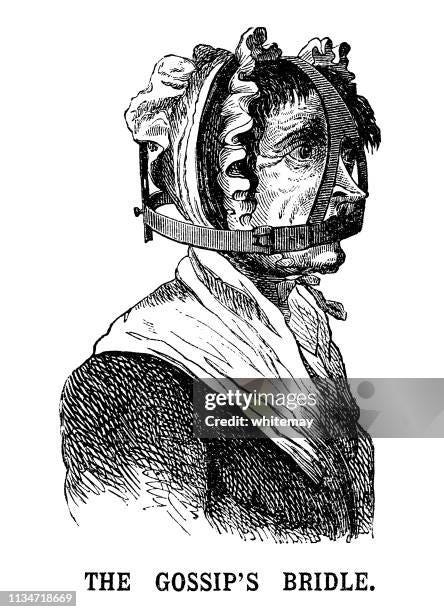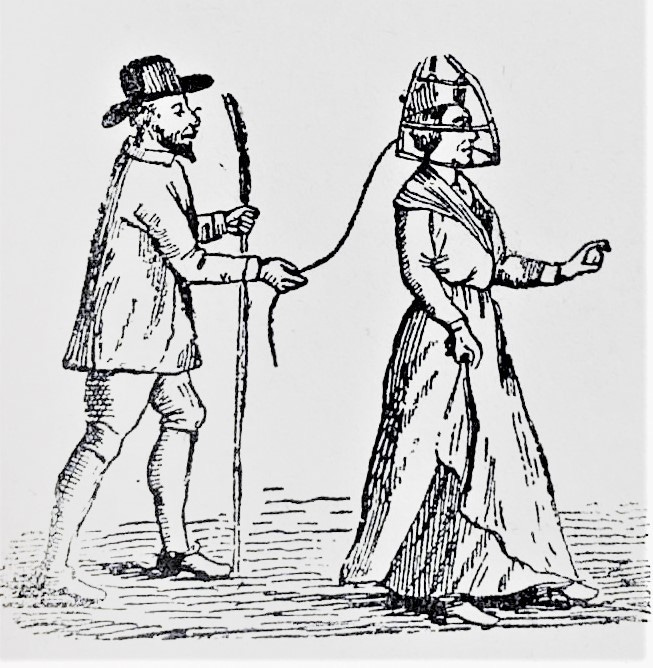What if ballerina farm was allowed to critique her husband?
An ex-Mormon feminist reads the Times article about Hannah Neeleman and it's a rollercoaster.
Two promises I am about to break:
1. I promised myself I wouldn't write any new articles this month. I'm on vacation and like a good little Substacker I've got four re-posts all lined up and scheduled out.
2. I promised myself I wouldn't write about Hannah Neeleman (ballerina farm) again. A few months ago I wrote an article hailing her the hero of Sigmund Freud’s Madonna-whore complex.1
Well, here we are. It's 10:00pm. I'm on vacation.
And I'm writing about Hannah Neeleman.2
On Monday my. husband texted me "You have to read this article!" and linked the now viral Times article that had just come out about ballerina farm.
I thought “Meh, I've read plenty of thought pieces about ballerina farm.” I wasn't in any hurry.
A few hours later, my friend texted, "I NEED to know your thoughts on this article!"
I was pretty confident I had already heard all the hot takes on the trad wife queen, but ok, ok.
I was on the road and entirely offline for a few days. I didn't give it another thought until Wednesday night.
I finally got all the kids down, plopped on the bed in my Airbnb, grabbed my phone and oh yeah…. that ballerina farm article. I pulled it up.
A few paragraphs in, no new information, but I'm intrigued. I have never read a one-on-one interview with the Neelemans before.
And then I read this quote:
A question about the wife's feelings and the husband claims authority instead? And answers incorrectly?
I don’t like it….
And then this quote:
The ego-boosting, the glancing, the deferring to her husband's thoughts on a question asking for her lived experience?
Oh boy.
I swipe away from the article and pull up Marco Polo. Hair splayed on my pillow, I tap on my friend Kath’s name and for a minute I just breathe in and out on screen taking long extended exhales.
Hand on my forehead covering my eyes I say, "Oh! My! Gosh! I'm reading the article and I'm so triggered! I'm having a physiological response to the descriptions of her husband!"
(And the article hadn’t even gotten started yet!)
When I finished the article, wide-eyed and heart pounding, full of righteous indignation towards “nice Mormon husbands”, I scoured the internet for commentary.
I quickly discovered this whole debacle was much bigger than I realized. People magazine covered the response to the Times article. As did Forbes, Us Weekly, and The New York Post. My Tiktok algorithm had no interest in discussing anything else.
That night I was thankful that I almost exclusively discuss 1. Mormonism and 2. Patriarchy on my Instagram account. I had made my feminist ex-Mormon bed and now got to luxuriate in lying down in it.
I wrote some of my thoughts and reactions to the article on my Stories and was flooded with the camaraderie of women thinking and feeling the exact same things.
Dozens of responses included this same sentence:
Us ex-Mormon women have been…… affected by this article.
It’s been three days since I first read it, and I too, CANNOT STOP THINKING ABOUT IT.
Why?
So many reasons.
Perhaps one of the more surprising feelings this article leeched out of me has been…. relief.
It can be beyond frustrating to try to point out the insidiousness harm of Mormon patriarchy to those who just don’t see it.3
Mormon men aren’t douchy frat boys spiking girls drinks.4 They aren’t tattooed leather-clad hardened criminals. They aren’t fist-pounding, power-hungry, screaming CEOs.5
What are they? Well…. they’re just… very… nice.
Their good-guy niceness can act as a blindfold, preventing a clear picture of the harms of Mormon patriarchy. (“He doesn’t mean any harm! He’s so nice! He’s such a good guy!”)
But then, like a birthday party goodie bag, this Daniel Neeleman article is gifted to those of us red in the face trying find the words to explain the unexplainable holy mess that is the Mormon marriage.
And chef’s kiss, this four hour snapshot just nails it.
The smiling beauty queen farm wife who is secretly needing to lie in bed for a week at a time out of exhaustion. The professional ballet career just within grasp as a senior at Juilliard abandoned when husband’s dreams play the trump card. The one space meant for mom turned into a kids school room. The husband taking over the interview meant for wife while she makes lunch for the kids, baby on hip. The ballgowns stowed away in the basement. The husband’s incessant interrupting and speaking on behalf of the wife. The wife’s constant deferring, praising, nervous glancing, allowing her opinion to be side-swiped again and again by the husband.
It was all so perfectly captured. The invisible made visible.
Mormon wife or Dobby the house elf? Can we spot the difference?
One line bothered me more than any other. It is a line altogether very innocent and non-sensible to be bothered about, but it hit a nerve.
When Hannah is asked how she deals with pushback, she looks over at Daniel and says, “Daniel is so good about that.”
It seems innocuous enough- the complimenting of your partner.
Only…..
There’s something here. It’s something that I noticed even in my most Mormon days.
Story time.
Over a decade ago, we were living in Iowa. One night I had some other Mormon ladies over in my basement for a sewing night.
I can’t remember the flow of conversation exactly, but I know we were talking about our husbands. I don’t remember being uncomfortable with the husband conversation, but I definitely remember one woman interjecting and saying something along the lines of, “I’m sorry. My husband and I have a rule to never say anything bad about each other. So even just hearing a conversation headed that direction… it just… makes me uncomfortable.”6
Awkward.
We were all on our best husband-fawning behavior after that.
But even apart from that conversation, I’ve noticed a distinct pattern when Mormon (or even ex-Mormon) wives say something that could even slightly be construed as negative about their husband: they turn into Dobby the house elf bashing himself on the head when he says anything bad about his masters.
Only instead of bashing themselves on the head, they correct by spewing out spousal compliments like a fire hydrant that has sprung a leak.
“Yeah, my husband doesn’t really cook…. Oh but he’s SO good about changing diapers! He’s a really hands-on dad.”
“My husband doesn’t want me to go on that girls trip….. It’s just that he works so hard for us. The kids are a lot and he deserves a break.”
“Yeah my husband yells at the kids sometimes…. but I’m so lucky. He does the laundry and helps so much. He’s one of the good ones.”
It’s like we have this robotic tick programmed into us: (*I’m typing in robot voice here) must… not… speak… poorly… of… husband.7
And look, I’m not advocating shit-talking your spouse. Being hyper-critical and slamming your partner on the regular is a great way to make both yourself and your partner miserable in your relationship.
But I’m not talking about shit-talking here. I’m talking about the having permission to admit struggling with your partner- even to yourself.
It reminds me of some articles about gossip I’ve seen circulating this year.
We need to talk about scold’s bridles real quick
Gossip has a 500 year history of being condemned as a sin. But originally the word gossip came from “god-sip” which was a term for female midwives. Through the years, “gossip” came to denote female companionship.
In the 16th century, there were actual proclamations and laws created outlawing gossip- forbidding women to “meet together to babble and talk.” Soon gossiping got piled on as one of the things deemed worthy of burning a woman over.8
Or at least forcing her into one of these babies:

We have record of these scold’s bridles being used from the 16th all the way to the 19th century. Women could be forced to wear one for anything from nagging her husband, speaking out against abuse, preaching in public, complaining, voicing a dissenting opinion or doing anything vaguely “witchy.”
Fun fact: for a time it was customary when a husband turned his wife in for gossip, for him to parade her around the town in her scold’s bridle to further deter her and any female on-lookers from speaking badly about their husbands.
Consequently, these women missed out on sharing important information about unsafe men. They missed out on that important “me too” feeling of struggling with the same things and brainstorming potential solutions.
(Perhaps remnants of the scold’s bridle are floating around the DNA of Mormon women?? They seem to have an inner scold’s bridle that comes pre-programmed in.)
Gossip can serve a very important function both personally and societally.
The book Sapiens goes so far to assert that gossip has been a critical component of our species survival. Early humans needed to know what was going on in the tribe, who you could trust and who you couldn’t.
In her excellent article on gossip
cites a recent study on the benefits of gossip:“A study published in Sage Journals by researchers from Stanford University and the University of California, Berkeley, found that the threat of gossiping can indeed effectively deter harmful behaviour. Once people have been gossiped about for behaving in an untrustworthy or selfish way, they tend to adjust their behaviour to avoid developing a bad reputation. The study also demonstrated that gossip allows people to know who to trust and who to avoid, promoting cooperation even in settings where some might be tempted to exploit others.” - Katie Jgln
Hm, being able to speak freely about people “promotes cooperation even in settings where some might be tempted to exploit others.”
I can’t help but wonder, what if Hannah Neeleman were allowed to acknowledge what is hard about being married to Daniel? What if she had permission to state it plainly? To discuss it? To vent? To admit? Even to herself?
How would her life be different?
Would she be able to validate her own reality when she struggles? Would she be in a better position to see and communicate her needs when they aren’t met?
My attempt to put myself in ballerina’s shoes
I can’t stop thinking about what Hannah is thinking since the article came out. I keep trying to put myself in her shoes.
I’ll never know of course. All I can really do is project what I would have been thinking and feeling when I was an active Mormon woman.
I imagine I would have felt betrayed by the author, letting her in our home, expecting to clear the record that we don’t have hidden hired help. I imagine I would be devastated that what I hoped would be a sharing of God’s light was tainted and portrayed as ugly. God’s will for the sanctity of the family ridiculed.
I imagine I would be deeply embarrassed and frustrated everyone sees me as a helpless victim imprisoned by my husband when I view my life far differently. I imagine I would be nervous for how my husband would take the article. I would feel defensive of him, would tally in my mind all the ways he really is wonderful, all the things the author didn’t see.
And maybe, somewhere deep down, a part of me would feel tender where the writer hit a sore spot. Hit on something true. Some forgotten dreams, some loss of self, some irritations. I imagine I would not like to see myself as a victim, but eight kids in, you start to notice some things that just …. aren’t fair.
I don’t know Hannah, but I know Mormonism. And I know that the black and white thinking so pervasive in the religion bleeds into marriage too. Either you love your spouse, speak positively of them, listen to them and work together. Or you speak poorly of them, don’t listen to them, don’t work together, and don’t love them.
I don’t know Hannah, but I hope in the coming years she makes room for two things being true at the same time:
You can love your husband dearly. AND you can demand more for yourself- more help, more space, more autonomy, more vacations to Greece, more ballet studio space.
You can speak and think positively of your husband. AND validate your reality when he’s not making room for you.
You can love your husband AND know that even though he is doing more than his dad did- it still doesn’t reach equality.
You can be so fond of your husband AND admit that the marriage script you were handed from your parents, church and culture isn’t serving you.
You can love your husband and be trapped in a system whose engine runs on your endless self-sacrifice.
"Go hard on systems, not people" is a standard I try to follow in my writing, but I felt like I toed that line in a way that didn't sit quite right with me after I published that article.
As someone who writes about patriarchy and Mormonism, for the Mormon patriarchy to be in the news so heavily this week… I can’t hold myself back from joining the fray. Forgive me.
do not recommend
usually
usually
unrelatedly, her husband was a goat turd.
I do not notice this pattern in Mormon husbands.









For me, it’s the week in bed from exhaustion that I can’t stop thinking about. I’m so confused why Daniel shared that. Is it a badge of honor that she literally runs herself into the ground? Is he proving a point that they have no help in the house? In my opinion, that’s such an obvious red flag, like something is wrong if Hannah is sick from exhaustion for a week regularly. And do we think Daniel takes a week off from the farm to step in? Doubt it. He missed one of his children’s births because he was working.
I see her because I’ve fantasized about being sick so I can take a couple days off. Is being sick from exhaustion her only break? Why do we insist on praising women for giving literally everything?
I love what you point out. I agree that exmormon women struggle just as much. It’s an ongoing struggle in my marriage. Wanting more, being grateful that he does good, but also seeing the way I’ve been shortchanged. My inability to stand up for myself and demand help, because I catch myself feeling programmed to think “he had a long hard day, I can’t ask more” even as I’m in the trenches of post partum and drowning in children and trying to maintain everything else that keeps a family running while keeping up my career. It’s so damn hard. And I think so many exmormon women perhaps found it most triggering because we can see ourselves in Hannah, at least a little.